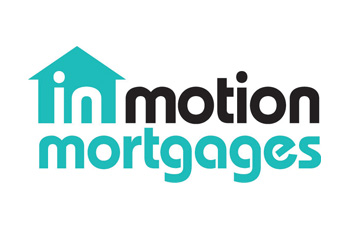Pros and Cons of Using Equity Release Mortgages in Retirement
Pros and Cons of Using Equity Release Mortgages in Retirement
Blog Article
Exploring the Different Kinds Of Equity Release Mortgages Available Today
Equity Release mortgages present numerous options for house owners aged 55 and over. equity release mortgages. These economic items cater to various requirements and choices, allowing people to accessibility funds from their residential or commercial property. From life time home loans to common admiration home mortgages, each kind offers distinctive benefits. Comprehending these alternatives is important for making educated decisions. What factors should one consider when choosing the most suitable equity Release strategy? The information that follow might clarify this vital topic
Understanding Equity Release Mortgages
Equity Release home loans offer home owners, commonly those aged 55 and over, with a means to access the value bound in their residential or commercial property without requiring to offer it. This monetary alternative permits individuals to transform a part of their home equity right into cash, which can be made use of for various purposes, such as home improvements, paying off debts, or financing retirement.Equity Release can take different types, yet it fundamentally involves loaning versus the value of the home while keeping possession. Home owners can choose to get a round figure or a series of smaller sized payments, relying on their financial needs and preferences.Additionally, the amount offered for Release is influenced by the home's worth, the house owner's age, and specific lender requirements. Overall, recognizing equity Release home mortgages is essential for homeowners to make informed choices concerning taking advantage of their home's equity while considering the long-term implications.
Lifetime Mortgages
Life time mortgages represent among the most popular forms of equity Release. This financial item permits homeowners, commonly aged 55 or older, to borrow versus the value of their home while keeping possession. The funding, which is protected versus the home, builds up interest gradually however does not need monthly repayments. Instead, the funding and accumulated passion are repaid when the home owner passes away or moves into lasting care.Lifetime home loans supply versatility, as customers can choose to receive a swelling amount or select a drawdown center, accessing funds as required. Notably, many plans featured a no-negative-equity guarantee, guaranteeing that debtors will certainly never owe greater than the value of their home. This feature offers assurance, allowing people to appreciate their retired life without the fear of diminishing their estate. Generally, life time home mortgages act as a feasible option for those seeking financial assistance in later life.
Home Reversion Program

Drawdown Life Time Mortgages
While many property owners look for methods to access their wide range, drawdown lifetime mortgages present a flexible alternative that enables individuals to Release funds gradually. This kind of equity Release mortgage allows property owners to obtain versus the value of their property while preserving possession. Unlike traditional lifetime mortgages, drawdown plans permit debtors to access a part of their equity upfront and take out additional funds as required, approximately a predetermined limit.This attribute can be particularly advantageous for those who want to manage their financial resources carefully, as it lessens interest accumulation by just charging rate of interest on the amounts drawn. Additionally, drawdown lifetime home mortgages frequently include a "no unfavorable equity warranty," ensuring that borrowers will never ever owe greater than their home's worth. This choice matches retired people that prefer monetary safety and adaptability, enabling them to satisfy unexpected expenditures or maintain their way of living without needing to offer their home.
Boosted Lifetime Mortgages
Boosted Life time Mortgages supply unique advantages for eligible home owners looking for to Release equity from their homes. Understanding the eligibility criteria is necessary, as it establishes who can gain from these specialized financings. It is additionally essential to evaluate the potential downsides connected with enhanced choices, ensuring a well-shaped perspective on their usage.
Eligibility Standards Explained
Recognizing the qualification requirements for Enhanced Lifetime Mortgages is crucial for potential candidates seeking to access the equity in their homes. Typically, candidates should be aged 55 or older, as this age requirement is basic in the equity Release market. Property owners ought to possess a residential or commercial property valued at a minimal limit, which can vary by lending institution. Significantly, the residential or commercial property should be their primary home and in excellent problem. Lenders often examine the house owner's health condition, as certain wellness conditions may enhance eligibility and benefits. Additionally, applicants should not have existing substantial financial obligations secured versus the residential property. Fulfilling these requirements permits individuals to explore Boosted Life time Mortgages as a practical option for accessing funds locked up in their homes.
Advantages of Boosted Mortgages
After making clear the eligibility standards, it becomes noticeable that Boosted Life time Mortgages supply numerous considerable advantages for homeowners aiming to utilize their building equity. Mainly, they provide access to a larger finance quantity contrasted to basic lifetime home mortgages, profiting those with health and wellness conditions or age-related elements that boost their life span risk. This improved borrowing ability enables property owners to meet various financial demands, such as home enhancements or retirement costs. Additionally, these mortgages commonly include versatile settlement alternatives, making it possible for consumers to handle their finances better. The no-negative-equity guarantee even more guarantees that property owners will certainly never owe greater than their home's worth, offering satisfaction. Overall, Improved Life time Home mortgages present a compelling alternative for qualified homeowners looking for financial services.
Possible Drawbacks Taken Into Consideration
While Enhanced Life time Home mortgages offer various advantages, potential disadvantages warrant mindful consideration. One considerable worry is the influence on inheritance; the equity launched reduces the value of the estate delegated beneficiaries. In addition, these mortgages can accrue significant passion in time, causing a significant financial debt that might surpass the original loan amount. There may likewise be restrictions on building modifications or rental, restricting house owners' versatility. Enhanced products frequently require certain health and wellness conditions, implying not all house owners will qualify. Managing the costs and fees linked with these home loans can be complex, possibly leading to unforeseen costs. As an outcome, people ought to thoroughly analyze their circumstance and speak with economic consultants before continuing.
Shared Recognition Mortgages
Shared Admiration Home loans represent an one-of-a-kind monetary arrangement that permits property owners to accessibility equity while sharing future building worth boosts with the lending institution. This method provides possible benefits such as lowered regular monthly payments, yet it also includes disadvantages that have to be very carefully go to this website considered. Understanding the eligibility demands check over here is essential for those interested in this option.
Idea Overview
Equity Release mortgages, particularly in the type of shared recognition home loans, use house owners a special monetary solution that enables them to accessibility funds by leveraging the value of their property. In this plan, a lending institution provides a financing to the home owner, which is usually settled through a share of the residential property's future appreciation in value. This implies that when the house owner markets the property or passes away, the loan provider gets a portion of the boosted worth, instead than simply the first finance amount. Shared appreciation mortgages can be appealing for those wanting to supplement their income or finance significant expenses while retaining possession of their home. Nonetheless, the economic effects of shared gratitude should be thoroughly considered by potential consumers.
Advantages and Drawbacks
Although shared recognition mortgages can offer significant economic advantages, they likewise include noteworthy disadvantages that possible customers should take into consideration. These home mortgages allow home owners to access equity in their residential or commercial properties while sharing a section of any future recognition with the loan provider. This setup can be advantageous throughout times of climbing home worths, supplying substantial funds without regular monthly payments. The primary disadvantage is the prospective loss of equity; house owners might finish up with substantially lowered inheritance for successors. In addition, the complexity of the terms can cause misunderstandings relating to payment responsibilities and the portion of gratitude owed. For that reason, it is vital for debtors to evaluate these elements thoroughly before devoting to a common recognition mortgage.
Qualification Needs
What standards must home owners fulfill to certify for a shared gratitude mortgage? Largely, prospects should be at the very least 55 years of ages, guaranteeing they are within the target demographic for equity Release products. Additionally, the property has to be their main residence and generally valued over a specified minimum threshold, usually around ? 100,000. Lenders likewise assess the home owner's monetary circumstances, consisting of income and arrearages, to determine they can take care of the home loan sensibly. Significantly, the property needs to be in great problem and devoid of significant legal encumbrances. Home owners ought to additionally have a clear understanding of the terms, including exactly how appreciation will be shown to the lender upon sale or transfer of the residential property, as this affects general returns.
Picking the Right Equity Release Option

Frequently Asked Questions
What Age Do I Need to Be for Equity Release?
The age demand for equity Release normally starts at 55 for a lot of strategies. Nevertheless, some service providers may offer alternatives for those aged 60 and above, reflecting differing terms based upon private scenarios and lender policies.
Will Equity Release Affect My Inheritance?
Equity Release can affect inheritance, as the amount obtained plus rate of interest reduces the estate's worth. Successors may receive much less than anticipated, depending upon the home's admiration and the complete financial obligation at the time of passing.
Can I Move Home With Equity Release?
The concern of moving home with equity Release emerges regularly. Typically, individuals can move their equity Release strategy to a brand-new property, but specific terms and conditions may use, requiring assessment with the loan provider for advice.
Exist Costs Associated With Equity Release Mortgages?
Charges linked with equity Release home mortgages can include plan fees, valuation charges, and legal prices. In addition, there may be early settlement costs, which can impact the overall price and economic implications for the borrower.
How Does Equity Release Influence My Tax Obligation Situation?
Equity Release can influence one's tax scenario by possibly raising taxed revenue, as launched funds are thought about resources. It generally does not incur instant tax liabilities, making it necessary to get in touch with a financial consultant for individualized support.
Conclusion
In summary, the range of equity Release home loans readily available today supplies home owners aged 55 and over several paths to access their home's value - equity release mortgages. Whether selecting a life time mortgage, home reversion plan, or other choices, each choice offers distinct benefits tailored to private economic requirements. Mindful factor to consider and appointment with a financial consultant are important to guarantee the selected equity Release solution lines up with personal goals and economic situations, eventually assisting in notified decision-making for a safe and secure monetary future. Equity Release home mortgages existing various options for home owners aged 55 and over. Equity Release home loans supply home owners, generally those aged 55 and over, with a means to access the value tied up in their residential property without needing to sell it. Improved Life time Mortgages provide unique advantages for qualified property owners seeking to Release equity from their residential properties. Equity Release mortgages, especially in the form of common gratitude home loans, provide homeowners a special financial option that enables them to access funds by leveraging the value of their home. In recap, the selection of equity Release mortgages available today supplies house owners aged 55 and over multiple paths to access their home's value
Report this page